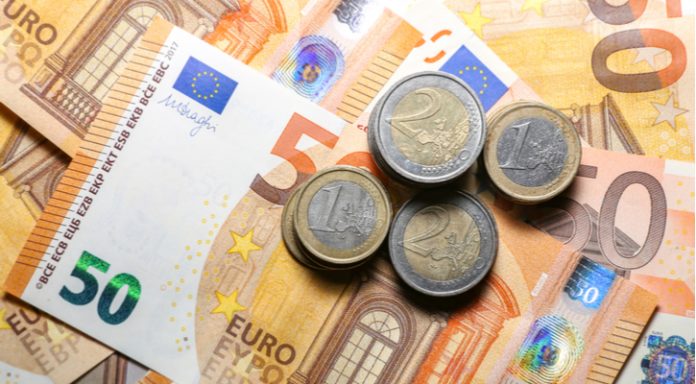After climbing across the morning, the pound ended Wednesday 0.1% lower versus the euro. The pound euro exchange rate rallied o a peak of €1.1349 before giving back all its gains and closing at €1.1279.
| What do these figures mean? |
|---|
| When measuring the value of a pair of currencies, one set equals 1 unit and the other shows the current equivalent. As the market moves, the amount will vary from minute to minute.h If the euro amount increases in this pairing, it’s positive for the pound. Or, if you were looking at it the other way around:1 EUR = 0.87271 GBPIn this example, €1 is equivalent to approximately £0.87. This measures the euro’s worth versus the British pound. If the sterling number gets larger, it’s good news for the euro. |
Hard to swallow predictions over the health of the UK economy following Brexit pulled the pound sharply lower. Government economists forecast that no matter what shape Brexit takes, the UK economy will be worse off. In the highly unlikely event that Theresa May’s Brexit gets approved by Parliament, the UK economy will be 3.9% worse off across 15 years, than if it had stayed in the EU.
Another hair-raising statistic was that the UK would receive no additional benefit from having an independent trade policy. This was a particular eye opener given that the Leave Campaign promoted the benefits of an independent trade policy as one of the key reasons to leave the EU.
Later in the session, Bank of England governor, Mark Carney backed up project fear by predicting that the UK leaving the EU with no deal would cause the UK economy to contract by 10.5% over 5 years. This would be the sharpest contraction to the UK economy since World War II. Mark Carney also predicted that Inflation would hit 6% and house prices would drop 30%. The petrifying outlook sent the pound tumbling.
| Why is a “soft” Brexit better for sterling than a “hard” Brexit? |
|---|
| A soft Brexit implies anything less than UK’s complete withdrawal from the EU. For example, it could mean the UK retains some form of membership to the European Union single market in exchange for some free movement of people, i.e. immigration. This is considered more positive than a “hard” Brexit, which is a full severance from the EU. The reason “soft” is considered more pound-friendly is because the economic impact would be lower. If there is less negative impact on the economy, foreign investors will continue to invest in the UK. As investment requires local currency, this increased demand for the pound then boosts its value. |
Will German Inflation Data Pull Euro Lower?
The euro was experiencing problems of its own in early trade as lingering concerns over Italy’s clash with Brussels refused to disappear. Headlines said that this Thursday, EU government delegates would back the European Commission (EC) for disciplinary action against Italy over their 2019 budget. Rome’s spending plans break EC rules and Italy remains defiant, refusing so far to change the draft budget. That said, the Italian economy minister Giovanni Tria, softened his tone slightly later in the day on Thursday, saying that Italy was looking for ways to contain its spending which supporting economic growth. The political tensions and concerns over Italy’s borrowing costs weighed on sentiment for the euro.
Today investors will be watching German inflation data. Whilst economic growth in the eurozone has been losing momentum, inflation has remained above the 2% target. Today, analysts are expecting German inflation to tick lower to 2.4%, from 2.5%. A weaker than forecast reading could drag the euro lower.
| Why does poor economic data drag on a country’s currency? |
|---|
| Slowing economic indicators point to a slowing economy. Weak economies have weaker currencies because institutions look to reduce investments in countries where growth prospects are low and then transfer money to countries with higher growth prospects. These institutions sell out of their investment and the local currency, thus increasing supply of the currency and pushing down the money’s worth. So, when a country or region has poor economic news, the value of the currency tends to fall. |
This publication is provided for general information purposes only and is not intended to cover every aspect of the topics with which it deals. It is not intended to amount to advice on which you should rely. You must obtain professional or specialist advice before taking, or refraining from, any action on the basis of the content in this publication. The information in this publication does not constitute legal, tax or other professional advice from TransferWise Inc., Currency Live or its affiliates. Prior results do not guarantee a similar outcome. We make no representations, warranties or guarantees, whether express or implied, that the content in the publication is accurate, complete or up to date. Consult our risk warning page for more details.
This article was initially published on TransferWise.com from the same author. The content at Currency Live is the sole opinion of the authors and in no way reflects the views of TransferWise Inc.





